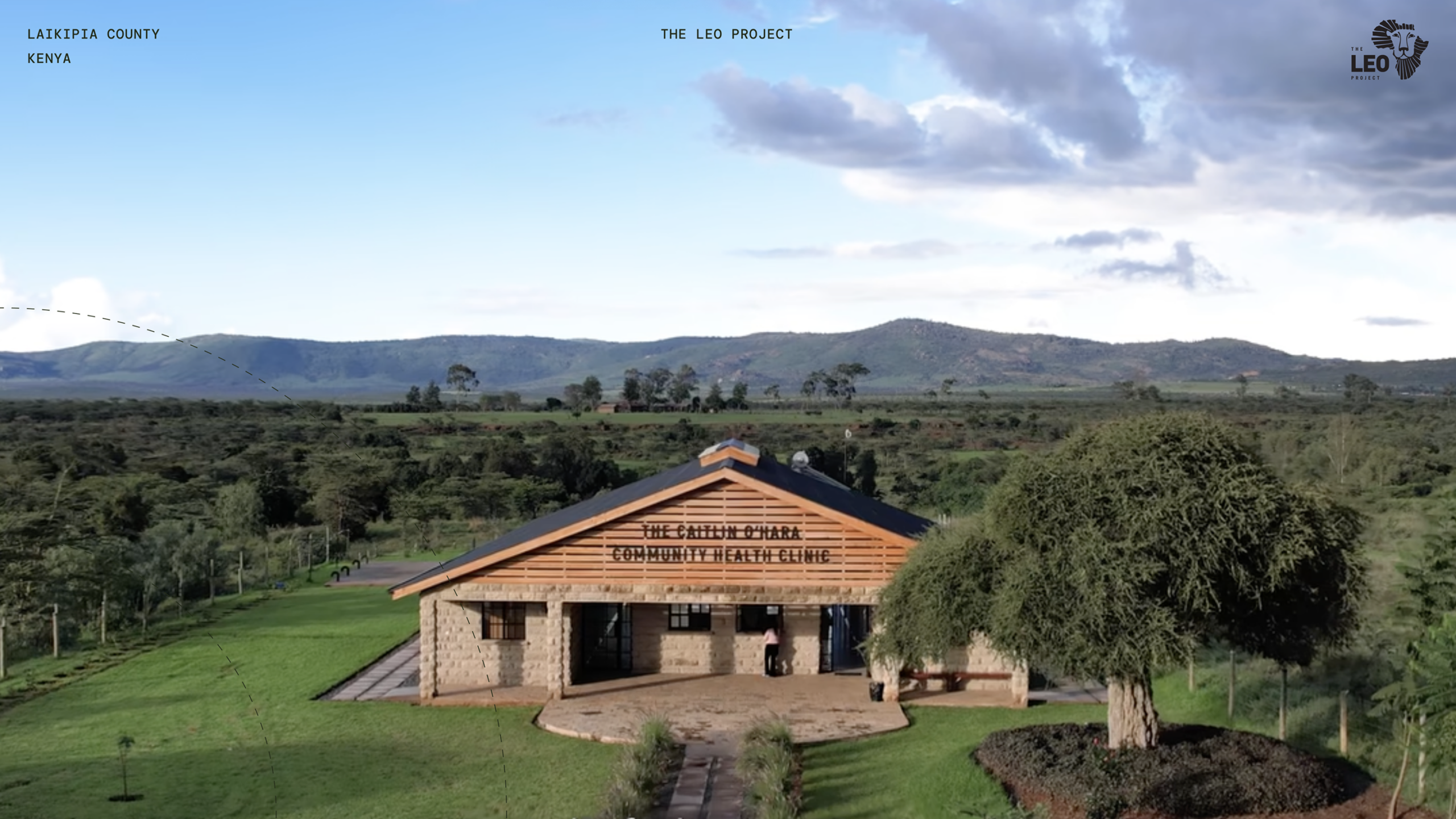Growing healthier together: The benefits of gardening for body and mind
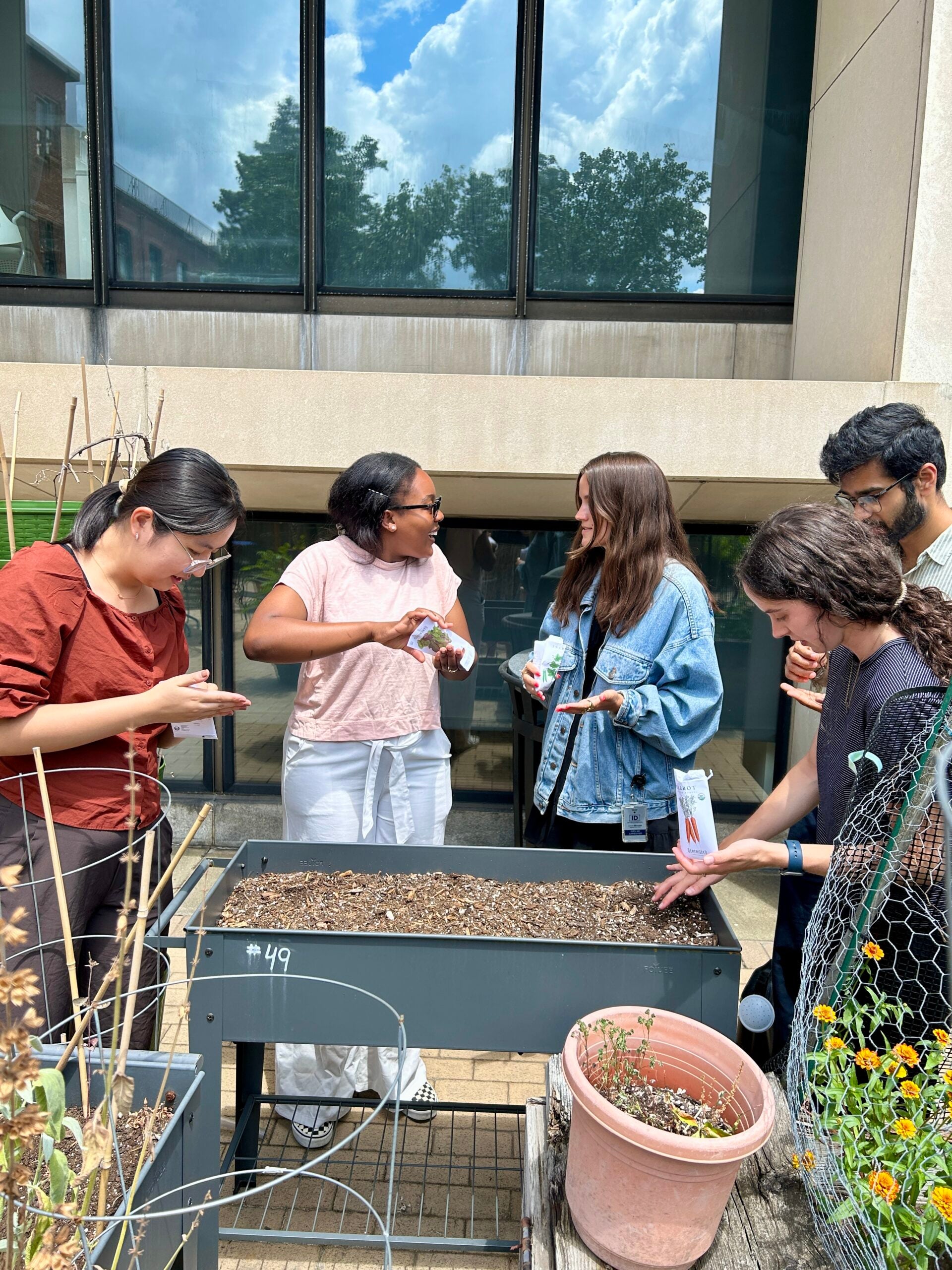
At the Mahalingaiah Lab, our research investigates the role of common exposures in our environments and how they may impact human health. Whether it’s identifying a link between air pollution and reproductive health1, or examining physical activity trends throughout the menstrual cycle2, we are reminded every day that we are all part of the same ecosystems that shape our daily lives.
Gardening is one particularly powerful way to connect with our bodies and environments. Nurturing plants is about much more than growing food or beautiful flowers; it’s a powerful way to grow connection with each other. And as public health professionals, we’d be remiss to not mention the evidence behind gardening as an activity for both body and mind.
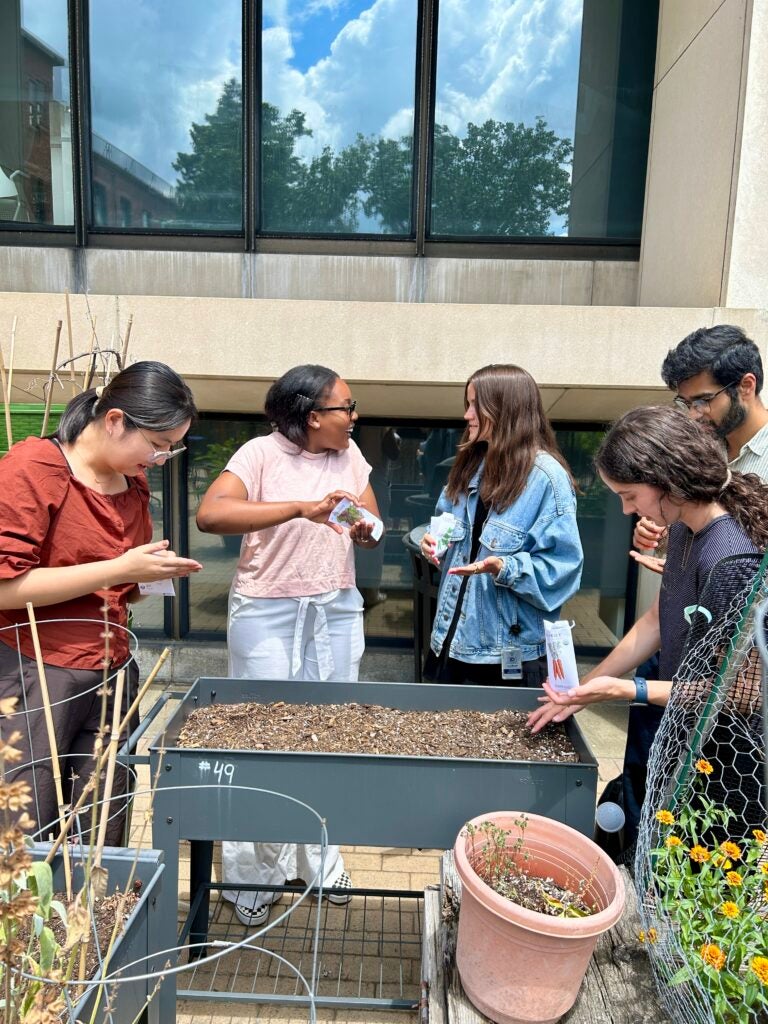
Physical Benefits of Gardening
Gardening is an excellent way to get outside, move your body, and engage in gentle exercise. Tasks like planting, pushing a wheelbarrow, and weeding can strengthen various muscles and boost heart health3. Spending time outdoors can also improve vitamin D levels4, which are important for bone health, immune function, and more5.
Mental and Emotional Wellness
Connecting with nature has clear mental health benefits, too. Research shows that gardening can reduce stress and anxiety3. Being outdoors and tending to plants fosters mindfulness (and can create a sense of accomplishment, especially when you see the literal fruits of your labor). The sensory aspects can be calming too – whether that’s the smell of fresh basil in the summer sun or getting your hands in the dirt.
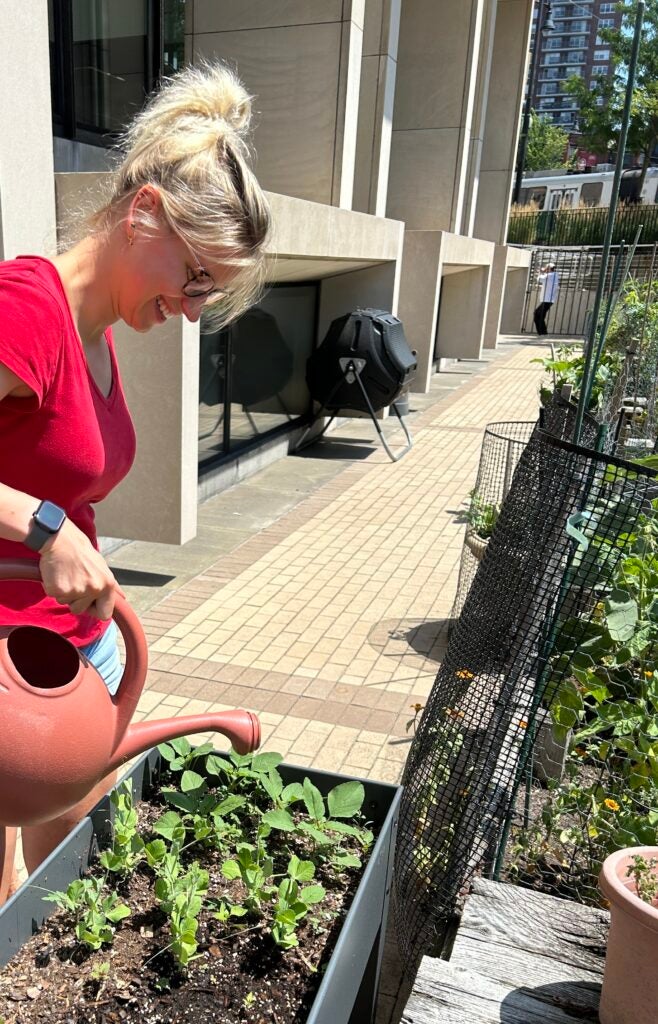
Environmental Health and Community Connectedness
Growing a garden not only supports pollinators and local ecosystems, but it is also a way to connect with others in the community over shared green spaces. Growing food together helps us appreciate our interconnectedness and underscores the importance of healthy environments for all. While not everyone has the same access to outdoor spaces, even small steps – like tending to a house plant – can offer wide-ranging benefits5.
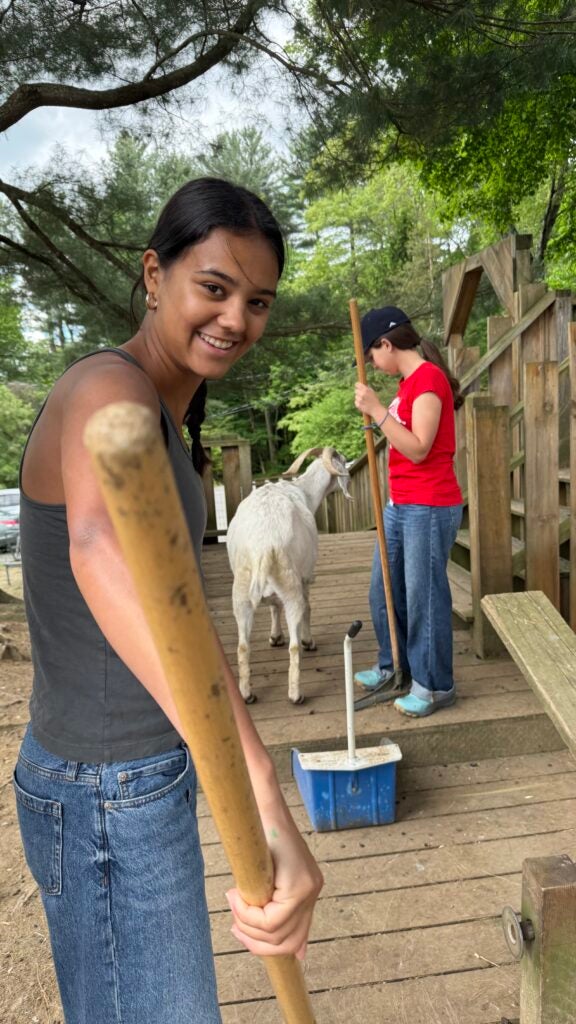
Join Us in Celebrating Our Environment Through Gardening
We are all stewards of the same planet – through our research responsibilities and beyond. Our team in particular is thrilled to be part of the vibrant community garden initiative at Countway Library. By working together to cultivate our plot, we hope to grow not just vegetables, but also well-being and a shared sense of purpose within the Department of Environmental Health.
Want to join in? Here are some of our team’s favorite gardening tips below:
- Celebrate Pollinators: Pollinators like honeybees, butterflies, and birds are crucial to our environment. Over one in three of the world’s food crops depend on pollinators to grow. Fortunately, there are many ways to build a pollinator-friendly garden and to support their vital contributions to our communities. Check out this guide from the USDA here to learn more.
- Grow Native Plants: Planting native flowers or herbs can support local biodiversity and creates attractive habitats for wildlife. Native plants are better adapted to local climate conditions, require less maintenance, and help reduce the damaging effects of air pollution (which can have a negative impact on our reproductive health1). Learning about native plants in your area can also make you feel better connected to your local community and the environment you live in. Learn more here.
- Practice Water Conservation: Collecting rainwater, mulching to retain soil moisture, and watering wisely can all prevent unnecessary water waste. This guide by the Massachusetts Water Resources Commission has more detailed tips about how you can implement these practices at home.
When we nurture our environment, we nurture ourselves and our communities. Interested in joining your own community garden? Check to see what is available near you here.
References
1: H. Li, J. E. Hart, S. Mahalingaiah, R. C. Nethery, E. Bertone-Johnson and F. Laden, “Long-term exposure to particulate matter and roadway proximity with age at natural menopause in the Nurses’ Health Study II Cohort,” Environ Pollut., vol. 3, no. 269, 2022. doi: 10.1016/j.envpol.2020.116216
2: Apple Women’s Health Study, “Exploring Exercise Habits by Menstrual Cycle Phase,” May 2025. [Online]. Available: https://hsph.harvard.edu/research/apple-womens-health-study/study-updates/exploring-exercise-habits-by-menstrual-cycle-phase/. [Accessed 2025].
3: J. Corliss, “Gardening and yard work: Exercise with a purpose,” 1 October 2024. [Online]. Available: https://www.health.harvard.edu/exercise-and-fitness/gardening-and-yard-work-exercise-with-a-purpose. [Accessed 5 August 2025].
4: U.S. Centers for Disease Control and Prevention, “Benefits of Spending Time Outdoors,” 1 July 2024. [Online]. Available: https://www.cdc.gov/skin-cancer/outdoors/index.html#:~:text=Vitamin%20D,dairy%20products;%20and%20egg%20yolks.. [Accessed 5 August 2025].
5: National Institutes for Health Office of Dietary Supplements, “Vitamin D,” 8 November 2022. [Online]. Available: https://ods.od.nih.gov/factsheets/VitaminD-Consumer/. [Accessed 5 August 2025].
6: “Effects of Indoor Plants on Human Functions: A Systematic Review with Meta-Analyses,” Int J Environ Res Public Health, vol. 19, no. 12, 2022. doi: 10.3390/ijerph19127454
